
- Our studies
- Our research
- Publications and resources
- Data access and training
- About
- News
- Events
- Get in touch
- Join our mailing list

Welcome to our news and blogs section. Here you’ll find the latest developments and insights from across our longitudinal studies.
UCL and the University of Bristol are to lead the Population Research UK (PRUK) co-ordination hub, part of an existing strategic investment from the UKRI Infrastructure Fund.

Celebrating 50 years of the 1970 British Cohort Study – BCS70 findings on adult numeracy and literacy helped to kickstart a series of government education initiatives that would improve the basic skills of millions of British adults during the 2000s.

Celebrating 50 years of the 1970 British Cohort Study – The Age 21 Sub Study was conducted with a 10% representative sample of cohort members from across Britain. It collected valuable information about levels of literacy and numeracy among young adults in Britain.

So, we’ve reached the end of our look back at BCS70 through the 1980s. Here’s an animated tour of the decade that brought us curly perms and synthpop, Thatcher and JR Ewing.

Celebrating 50 years of the 1970 British Cohort Study – With five decades of invaluable service to British science and society, what has it been like for our 1970 British Cohort Study members to take part in the study? This week we speak to Claire.
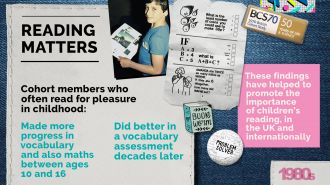
Celebrating 50 years of the 1970 British Cohort Study – Cohort members who had often read for pleasure made more progress in English, but also in maths, between the ages of 10 and 16, compared to those who had rarely read.

Celebrating 50 years of the 1970 British Cohort Study – During the Age 16 Sweep study members were given a 4-day dietary diary to complete. Analysed alongside dietary data from later sweeps, this information may help us to understand adult eating patterns, and health outcomes such as obesity and diabetes.

Celebrating 50 years of the 1970 British Cohort Study – With five decades of invaluable service to British science and society, what has it been like for our 1970 British Cohort Study members to take part in the study? This week we speak to James.
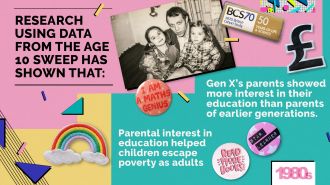
Data from the 1970 British Cohort Study has revealed that parents’ interest in children’s education has long lasting benefits.
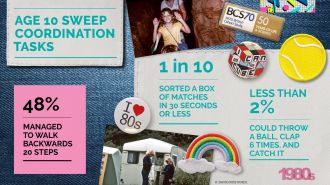
The Age 10 Sweep included measures of height, weight, head circumference, blood pressure, pulse, vision and hearing. Most of these measures were then repeated at age 16 and several were repeated in the Age 46 Sweep. This allows researchers to study trajectories of health from childhood into adulthood and how these are affected by other circumstances and behaviours throughout life.
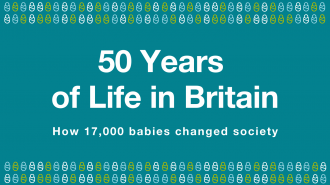
A new podcast series celebrating 50 years of the 1970 British Cohort Study (BCS70) begins today (Thursday 25 June). Over the next six weeks, ‘50 Years of Life in Britain’ will explore the contribution the BCS70 study members have made to improving British science and society.
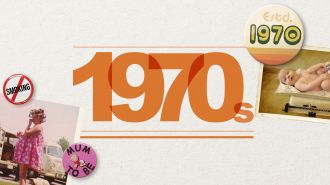
Celebrating 50 years of the 1970 British Cohort Study – So, that was the 1970s. And what a decade it was for Britain’s birth cohort studies. Here’s a whistle stop animated tour of the first 10 years of BCS70.
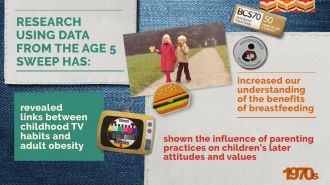
Celebrating 50 years of the 1970 British Cohort Study – Thanks to findings from the Age 5 Sweep we have increased our understanding of the benefits of breastfeeding, the links between TV viewing and adult obesity, and the influence of parenting practices on children’s later attitudes.
Ryan Bradshaw
Senior Communications Officer
Phone: 020 7612 6516
Email: r.bradshaw@ucl.ac.uk